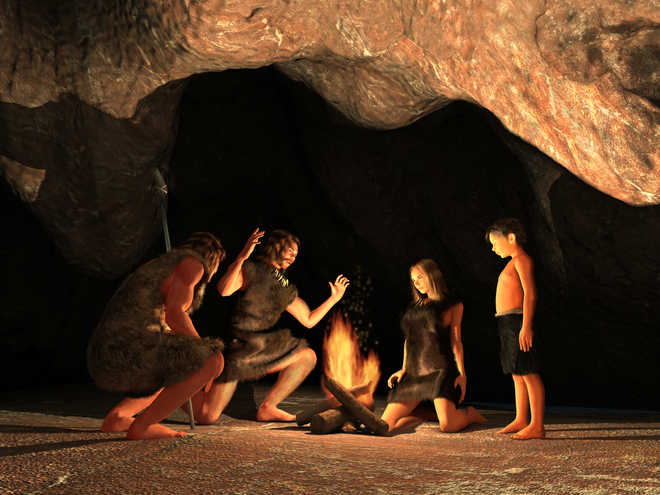
Photo source: Thinkstock
Berlin
Scientists have found that bone tools and artifacts thought to be the first evidence of modern humans in Europe, were actually made by Neanderthals — our closest extinct human relatives.
Using ancient protein analysis, researchers confirmed the disputed origins of bone fragments that were found in France.
Led by the Max Planck Institute (MPI) for Evolutionary Anthropology in Germany, researchers set out to settle the debate as to whether hominin remains in an archaeological site in France, date to Neanderthal ancestry or whether they indicate the first evidence of modern humans in Europe.
Known as the Chatelperronian industry due to numerous artifacts and body ornaments found in this area of central France and northern Spain, the area is critical to the debate regarding the extent of Neanderthal cognition, their replacement by modern humans and eventual extinction.
The exact biological nature of the Chatelperronian people has previously been disputed, with no direct molecular data for a Neanderthal association obtained.
However, using peptide mass fingerprinting for rapid, low-cost detection of hominin remains, the team identified 28 additional hominin specimens among previously unidentifiable bone fragments at the Grotte du Renne site in France.
It is thought the bone fragments most likely represent the remains of a single, immature, breastfed individual, with radiocarbon dating being fully consistent with its direct association to Neanderthal ancestry.
"For the first time, this research demonstrates the effectiveness of recent developments in ancient protein amino acid analysis and radiocarbon dating to discriminate between Late Pleistocene clades," said Professor Matthew Collins, from the University of York in the UK.
"To identify proteins related to specific developmental stages of bone formation highlights one of the main strengths of this new analysis, especially in a multi-disciplinary context," said Collins.
"These methods open up new avenues of research throughout Late Pleistocene contexts in which hominin remains are scarce and where the biological nature of remains is unclear due to ancient DNA not being preserved," he said.
This represents a significant advance in palaeoproteomic phylogenetics and is of direct relevance to our understanding of hominin evolution, researchers said.
"To differentiate between modern humans, Neanderthals and Denisovans on the basis of ancient protein research provides really exciting opportunities for future research into the origins of our and their evolutionary history," said Frido Welker from MPI. — PTI



























